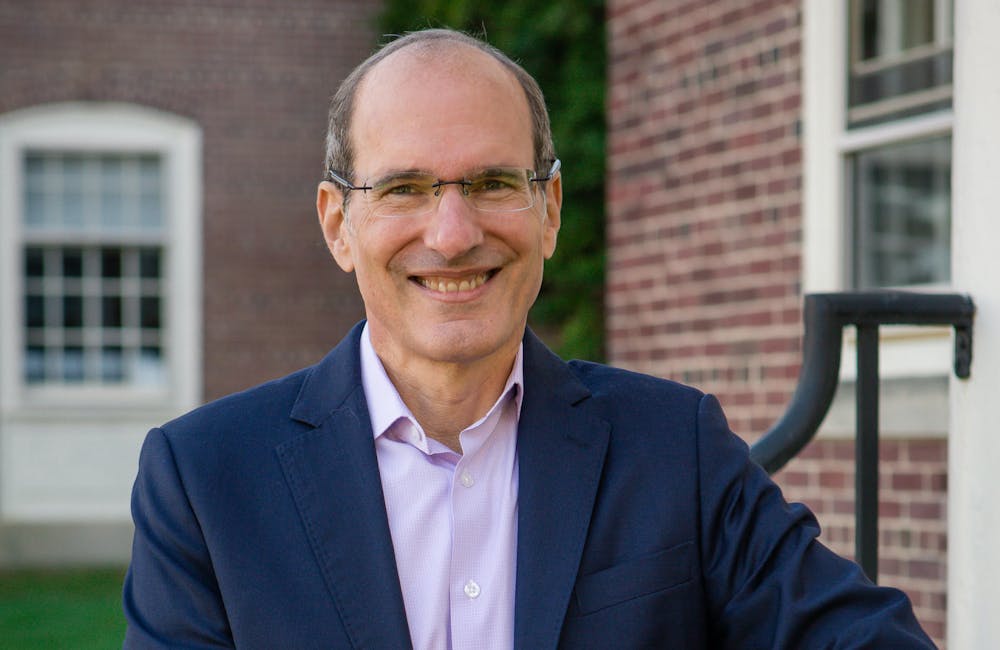The Institute for Advanced Study has appointed David Nirenberg GS ’92 as its new director and Leon Levy professor, per a Nov. 1 announcement. Nirenberg will take over the role from current director Robbert Dijkgraaf on July 1, 2022.
Nirenberg, who received his Ph.D. in history from Princeton in 1992, is currently dean of the Divinity School and a professor of medieval history at the University of Chicago.
Before attending Princeton for graduate school, Nirenberg received his bachelor’s degree from Yale in 1986. He served as a visiting scholar in the Institute’s School of Historical Studies from 1996–1997.
Nirenberg told The Daily Princetonian that he is excited to be taking on the new role.
“To be invited to join this community of brilliant scholars, and this institution that has contributed so much to humanity, is simply thrilling,” he wrote in an email to the ‘Prince.’
Nirenberg has held numerous administrative roles throughout his career. He was the founding director of the Neubauer Collegium for Culture and Society, Dean of the Social Sciences, and Executive Vice Provost at the University of Chicago.
Members of the Institute’s board also expressed their excitement at the decision in the official announcement.
“David’s administrative accomplishments, like the Institute itself, transcend cultural and disciplinary boundaries, providing new frameworks of knowledge to understand society and to realize the power of collective curiosity,” said Nancy Peretsman ’76, Institute Board Vice-Chair and Chair of the director search committee, in the official press release.
“David offers the leadership qualities to ensure that IAS remains a significant center for basic research as it approaches its centennial,” she added. “We are thrilled to welcome David as our next director.”
The Institute, located in Princeton, is a center dedicated to independent study focused across the sciences and humanities.
“The Institute was founded to enable promising researchers to make fundamental discoveries, and to defend the values that fundamental discovery depends on: namely, that discriminations by gender and race are inimical to excellence, that scholars and ideas must move freely if fundamental knowledge is to flourish, and that when such knowledge flourishes, humanity benefits,” Nirenberg wrote to the ‘Prince.’
As director, Nirenberg hopes to keep this mission alive.

“My goal is to continue this tradition of fundamental discovery and the defense of these fundamental values,” he added.
Institute Board Chair Charles Simonyi noted that Nirenberg’s role as a humanities scholar makes him a “bold choice” due to the recent tradition of directors with expertise in STEM fields.
“The appointment of a humanities scholar ... reaffirms in the strongest sense the importance of cross-disciplinary collaboration at IAS,” he wrote in the official press release. “An energetic and astute leader, David understands that the Institute is a public good in service of society: to be a haven for scholars with a long view ready to share the fruits of their curiosity.”
Nirenberg hopes that his background in history will continue to inform complex questions about science and the world when he becomes director.
“The Institute has always been a home to great humanists and social scientists, as well as physicists and mathematicians. That combination is powerful,” he wrote in an email to the ‘Prince.’ “Many complex questions — problems like climate change, the impact and future of the computation revolution, responses to pandemic disease — require historical and social as well as scientific understanding.”
“I’ve spent a good part of my career helping to bring these different approaches into conversations that can produce new perspectives and new knowledge, and look forward to doing so at the Institute,” he added.
Nirenberg’s research has focused on the relationship between Christians, Jews, and Muslims of the Middle Ages, and he has authored numerous books on the subject. He began this work while completing his graduate studies at the University, and said he believes his time there will inform his new role as director.
“So much of today’s world of research is about large scale,” he wrote to the ‘Prince.’ “But as a student at Princeton I experienced the intellectual power of intimate community. I think that prepared me for the Institute, which is all about the energy produced by bringing the most promising researchers from all over the world into an intense collaborative community.”
Nirenberg was advised by William Chester Jordan GS ’73, who is a professor of history at the University.
“It is thrilling that a humanist, who actively tries to bridge disciplinary boundaries, as my former student, David Nirenberg, does, will head the Institute,” Jordan wrote in an email to the ‘Prince.’ “He was and remains a pioneer in his efforts to bring scholars of all stripes together.”
Angela Creager, chair of the Department of History, echoed this sentiment.
“Speaking personally, I am delighted that the next president of the IAS will be a humanist,” she wrote to the ‘Prince.’ “There are already strong connections between scholars at the IAS and the Department of History, and there is no question these will continue, benefiting both institutions.”
The director search committee was made up of four Institute trustees and a representative faculty member from each of the four Institute Schools. Nirenberg’s directorship was ratified by vote on Oct. 30.
Dijkgraaf expressed enthusiasm at the decision in the official announcement. He said in the press release, “I couldn't think of a better choice to hand over the baton. I have come to know David as an eminent scholar, creative thinker, and thoughtful academic leader with an impressive track record of success.”
“He has a deep connection to the core values of IAS of joining together excellence, diverse perspectives, and the limitless possibilities of the shared pursuit of knowledge,” he added.
Zoya Amir Gauhar is a staff writer for the ‘Prince’. She primarily reports on science and research at the University. She enjoys combining her background in science with interviews to learn more about the people behind the research. She can be reached at zgauhar@princeton.edu.








